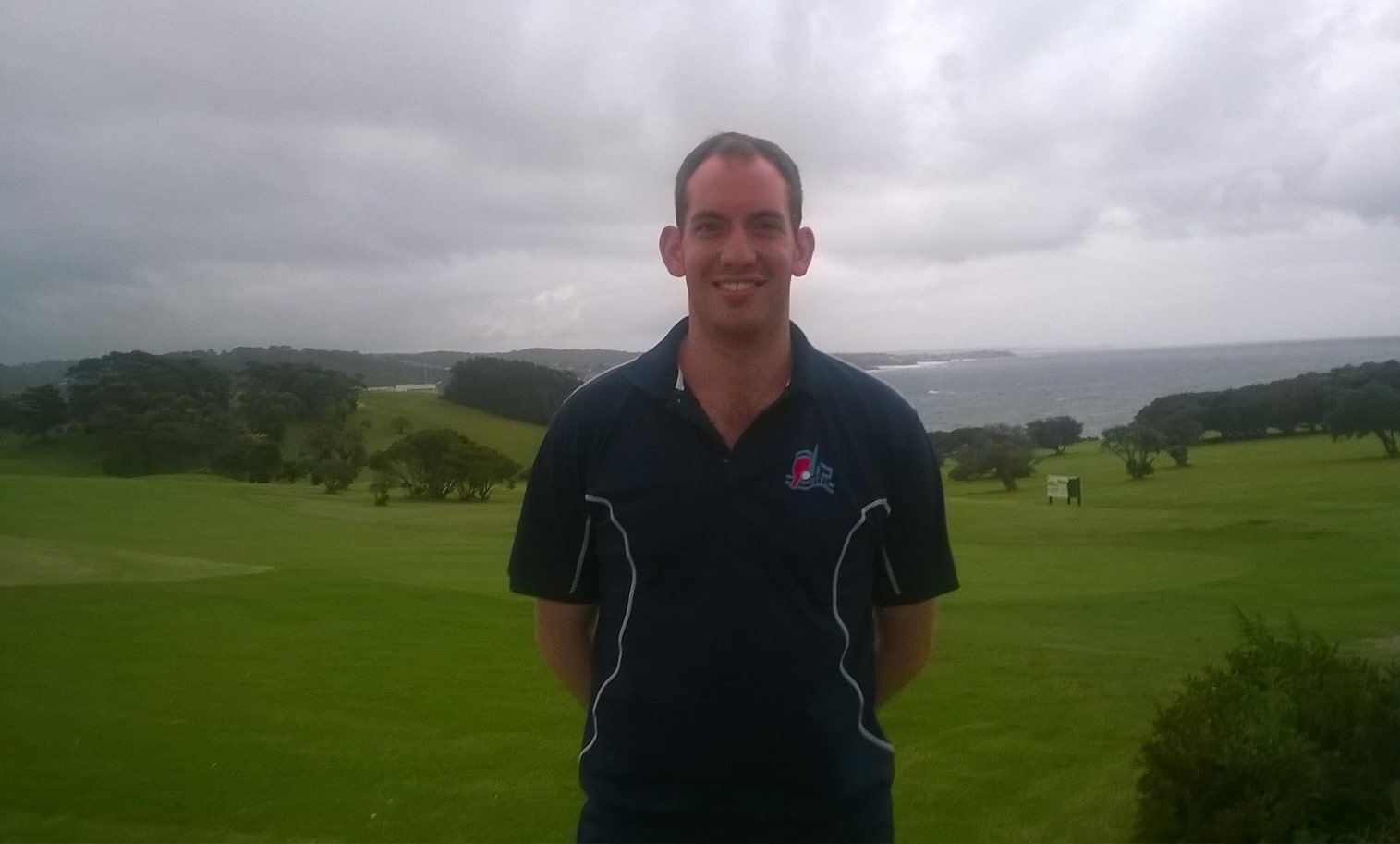
How Mark Ferris assists people living with disabilities as a Local Area Coordinator (LAC) at Feros Care
Feros Care’s Local Area Coordinator (LAC), Mark Ferris, has always been around people living with disabilities – his two sisters, brother-in-law, father and wife are on the autism spectrum. When his previous employer in childcare made a decision that failed to include children with additional needs, he pursued a calling to a career in disability services.
Having joined us in April, Mark says he’s found an organisation that empowers him to assist people living with disability through fantastic training and a culture of peer-to-peer support. Today, he offers his insights to others pursuing a career with our growing team.
A calling
Intrigued by how the mind works, Mark studied a Bachelor of Arts, majoring in Psychology from 2009 to 2011. He then began a Masters of Primary Teaching and entered the child services sector, managing after-school and vacation care. At the same time, his long-term passion for cricket saw him travel Australia as an umpire for Cricket Australia. He was intrigued to discover programs run for children with disabilities such as deaf cricket (played on a smaller field to account for the difficulty of not hearing the ball being struck, and thus, not being able to judge the distance it would go), and blind cricket (with a rattle inside the ball). A dream of a future career in disability began to take shape in his mind.
A whole new world: from childcare to the disability sector
“The childcare centre where I was working had 25-30 children with additional needs out of a cohort of 200. This is unusual compared to other centres, which often have 95% children without disability. My employer decided that any enrollment form with a child with a disability would not immediately be accepted, even if there was availability. The family would need to have a compulsory interview with management. The logic behind the decision was to ensure the child’s needs would be met. But the way it was done placed a barrier to enrollment. There are enough barriers in accessing services for children with disability. It was a moment that triggered my move into the disability sector.”
A new leaf
In Mark’s new role at Feros Care as Local Area Coordinator he works closely with National Disability Insurance Scheme (NDIS) participants to understand their disability and help them access the best services to suit their specific needs. On any given day he could be interviewing people in their home to transition them into the NDIS, or following up with participants to offer assistance, or conducting community education events on NDIS services.
“It’s a real privilege when someone allows you into their home and shows you something a bit different about themselves. You can see all the little things they have done to adapt, such as equipment to stay mobile, help them communicate or use tools. I recently met with a lady who has dwarfism. She lives in a world that is simply not suited to her so she has adapted her home to suit her needs. She has 3D-printed mechanisms to reach light switches and has also created other, more complex tools. I’ve met a remarkably diverse range of people with a very broad range of abilities and disabilities. It’s been incredibly eye-opening.”
We asked Mark for his advice to others looking to become a Local Area Coordinator (LAC) with Feros Care’s growing team.
1. Your listening skills are your most important asset
“You don’t have to be an expert in disabilities – but you do need to be an expert recognising when someone is expressing a need without knowing how to articulate it themselves. Statistics show that level of education is a strong predictor of the degree of funding in NDIS plans. This is a real concern as it means that people in the community who are most in need of support may not be getting it.”
2. Each person is the best authority to speak to about their disability
“Each person’s experience and challenges associated with their disability will differ from anyone else with the same disability. In any given week we might meet five NDIS participants aged from seven to 70. Some have challenges when it comes to learning and socialising at school; some are at risk of drug dependency, maintaining health, housing or employment. Some are very independent and only need minimal support. These differences exist even among people with the same disability.”
3. Seek advice and experiences from other LACs
At Feros Care, we have a wonderful culture of sharing knowledge. This directly benefits our clients as NDIS participants and the disability sector as a whole. There are so many disabilities that it would be very difficult to know about each one and the needs associated with them. We have a friendly and inclusive environment. No one is an expert in everything: we pull together.